As complex as reactions to Fidel Castro’s death were, there is one unifying sentiment: Change is not guaranteed. For Cubans living on the island, the day-to-day reality, whether they’re content in the status quo or not, isn’t poised to shift anytime soon. Castro’s passing was intensely symbolic and meaningful for many, but it came with no promises.
Cuba’s punk and metal community, at least, have expressed doubts about any improvements in their own particular condition. Issues of accessibility — most notably, access to the instruments and gear needed to make music, and the internet connection needed to circulate it — will likely continue to plague their progress.
After all, it’s Raul Castro who’s been president these past nine years, and when he steps down in 2018 as he’s previously announced, his appointed Vice President, Miguel Díaz-Canel Bermúdez, is expected to replace him. That means the U.S. embargo against Cuba will probably remain: The Helms-Burton Act of 1996, one of several statutes that enforces the embargo, requires a free and fair election in Cuba before trade can reopen.
Local Alejandro González Rodríguez, for one, has little hope for improvements that could benefit Cry Out For, the longstanding metal act he represents and organizes for.
“For metal and punk, everything will remain the same,” he says. “Only maybe with a radical change we will improve access to media and we will be able to sell and be recognized. Others will prefer the underground. Although I do not think that the death of someone means a change, but on the contrary, it serves to secure a status.”
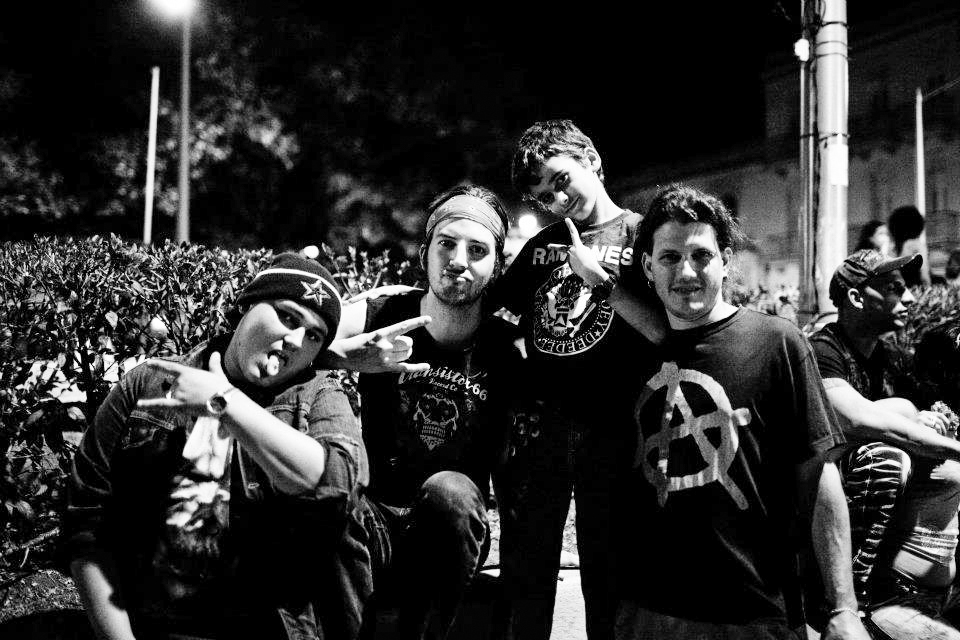
Across the globe, punk and metal aren’t necessarily known for seeking validation from the government, of course. But in Cuba, musicians operating outside the mainstream or without formal training aren’t considered professionals the same way those who play traditional Cuban folk genres are. What that distinction means under law is that punk and metal bands typically can’t keep any of the money earned from cover charges at shows. Professional acts, however, are allowed a minor percentage, and the rest belongs to the government and its state-run Empresa de la Música organization.
“For metal and punk, everything will remain the same.”
“There is some [irrational] thing that the Cuban system made that some bands can get paid for play, some they call ‘professional,’ and…[other] ones just cannot get paid. Even the entrance of places that they fill,” says Ricardo “Yoyo” Espinosa Manzo, guitarist for Santa Clara group Adictox, in an email exchange.
The road to that professional designation starts early in Cuba, with the Escuela Nacional de Arte training students aged eight through 18. While it’s free for Cuban citizens, it’s an audition-based program. A degree from there or another one of the country’s professional institutions is a requirement in most post-secondary programs at Universidad de las Artes.
Another hurdle in their ability to earn is the difficulty in making and selling merch. T-shirts, buttons, stickers — how a lot of independent acts make ends meet — simply aren’t viable options for most. In 2015, Cubans earned an average of $25 USD each month, though some recent reports count that number slightly higher. The system in which they live, of course, is different; it includes subsidies, like health care and education, at no charge to citizens. Still, it leaves DIY merch-making as a luxury most bands cannot afford.
Delvis Díaz, bassist for the metal band Resistenzia, echoed the complaint about earnings from gigs, noting via email that it’s “difficult to dream of T-shirts or any other type of merch.”
“Flyers are something we can manage, but with a lot of effort,” they wrote.
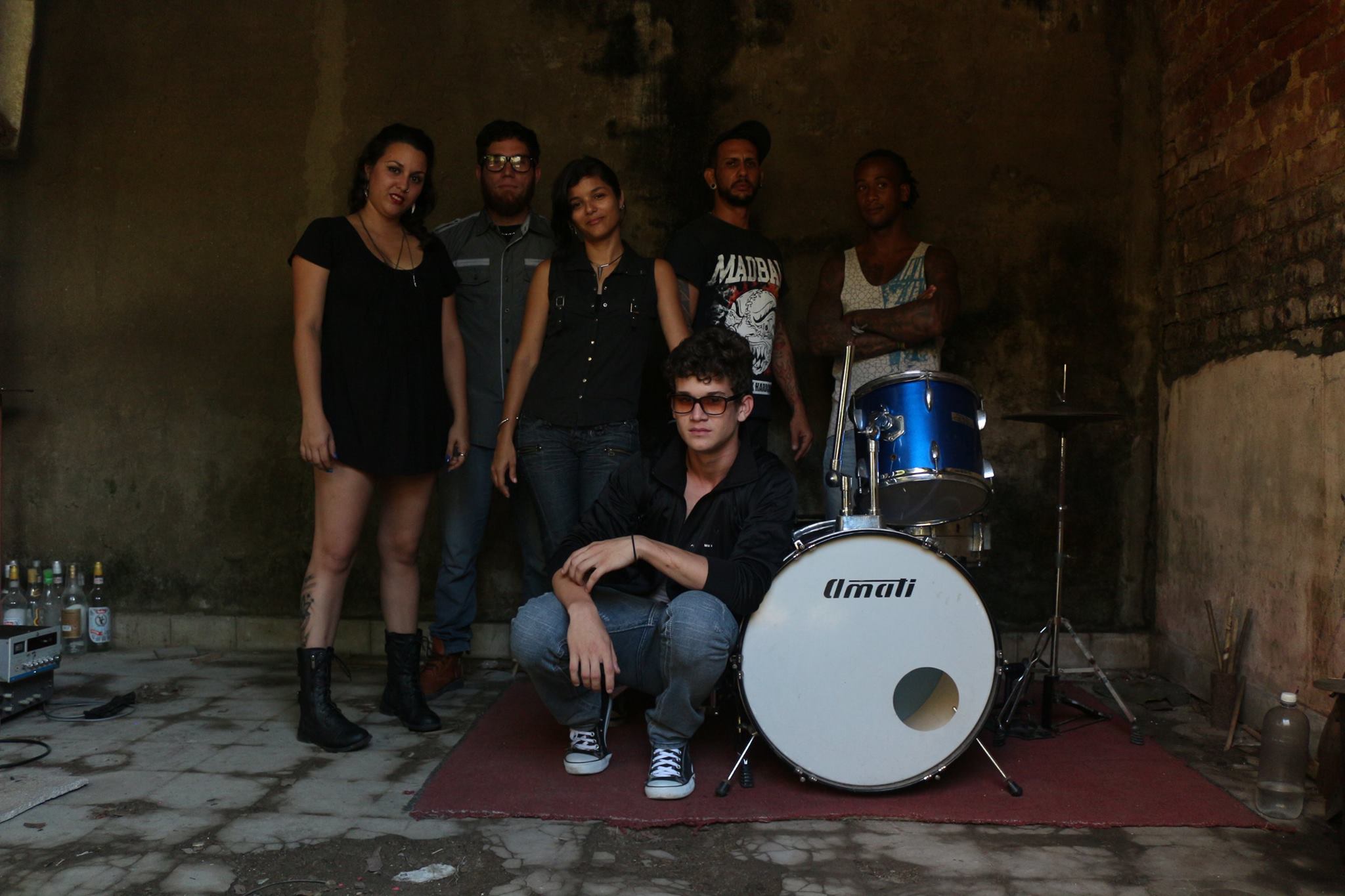
It’s widely reported that internet access is scarce in Cuba, and while the typical hourly rate has gone down to $1.50 USD, that remains pretty steep considering the average income. Home access has increased, but internet cafés remain the primary means of getting online. Uploading music to YouTube, Bandcamp, SoundCloud and the like, or even managing a band account on Facebook, are pricey endeavors in Cuba.
“Internet access is really fucked up,” Ricardo says. “Now we have Wi-Fi points, but it’s so fucking expensive…I’m [an] Information Science Engineer and I work at a company that [pays] a pretty good salary…and I need to work two days to pay one hour of internet on our internet company.”
Although universities and some companies afford their students and employees access, in general, it’s “internet for rich people and business people and tourists,” Ricardo says.
Ricardo is able to use the internet occasionally at work. He’s lucky in that respect, and in the fact that his band was able to tour outside the island — yet another area of band economy and growth that, for most, is blunted by policy.
That tour was made possible by Solidarity Rock, a Canadian nonprofit founded by Drew McIntosh a decade ago, working in conjunction with the Asociación Hermanos Sainz, a more than 30-year-old Cuban agency dedicated to promoting and supporting arts and culture, with particular emphasis on youth.
Joined by fellow Cuban band Arrabio, Ricardo and the rest of Adictox plowed through 15 different cities last year. Their jaunt included Toronto, Ottawa, Montreal, Vancouver, New York, Chicago, Philadelphia, and Seattle. It wasn’t their first visit to the general area, either: They’d already run through some of those cities in 2012.
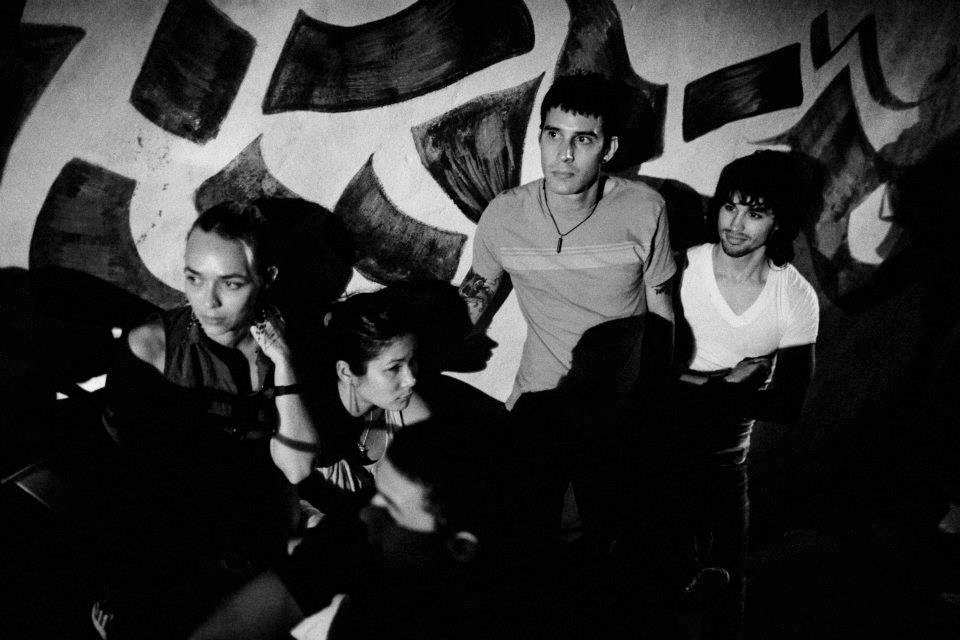
McIntosh first visited Cuba with an Edmonton band in 2007, he says. The AHS helped organize a show in Havana, but most took place in the center of the country, where he realized there was a thriving punk scene.
“That was right before any notion of Fidel Castro resigning, so it’s still firmly in the pre-change time of Cuba, so there was no – absolutely no – commercial access to any kind of guitar strings or picks, let alone amplifiers or guitars, those sorts of things. But it was a curious thing, because there were still punk bands playing music…but without any kind of logical access to the things that you would need to do it,” he says.
Back then, well before any talk of touring, McIntosh decided he could help fill that void. First two boxes, sent along with a Cuban who’d been in Miami visiting, sent with money raised by a benefit show in Canada. For additional rounds of supplies, however, McIntosh brought them in personally.
“There’s no blockade for Canadian people of any description, but at the same time, in Cuba, you can’t just import whatever you want to import,” he says. “So that was a tricky situation: How do we actually get stuff into that country? So we booked another tour with a band called Slates, and that was the first tour that was a Solidarity Rock tour.”
“As long as there is no radical change of policy in Cuba, we will continue, same as we have for 60 years.”
Over the course of these 10 years — in which McIntosh has visited a total of 24 times — they’ve managed to complete an entire backline — drums, amps, the whole shebang.
“We’ve done tours with nine or 10 different bands, and every time we’ve added to what’s down there. Through what we’ve sent down or brought down or who we’ve been involved with, there’s definitely been a growth in the punk scene in the center of the country. Primarily the bands that we’ve worked with are in Santa Clara, Sancti Spíritus, Trinidad and Cienfuegos,” he says.
In Santa Clara, one go-to spot for punk and metal shows is El Mejunje, a cultural space that in the 90s was a hub of the frikis movement. Back then, it was El Patio de María, named for María Gattorno, who’s largely credited with keeping its doors open and the scene supported during that era. (She also made huge efforts to stop the spread of HIV after many frikis self-injected the virus to gain access to sanitariums where food, which was especially scarce after the fall of the Soviet Union, was free and abundant.) It was shuttered by the government in 2003, though, and Gattorno backed away from the scene for some time. Finally, in 2014, she returned, accepting an offer to head up the Cuban Rock Agency, which was founded in 2007. Under her direction, they’ve built on their existing foundation of annual festivals, now hosting several shows a week at Maxim, the venue in which the agency is headquartered.
Between the Asociación de Hermanos Sainz, Solidarity Rock (and its Cuban-based counterpart, Rock Solidario) and the Cuban Rock Agency, however, some feel it’s not enough.
Eztafilokoko, a Havana band formed in 2013, isn’t on board with the Cuban Rock Agency. In an email — in which they asked to be called Punk Radikal Kubano (PRK) rather than single out a member — they likened the organization to a musical mafia. (They did give some love to Solidarity Rock, though, pointing out that they hooked the band up with two guitars and a drum kit, plus other supplies sporadically.)
“They’re the ones who keep all the money and they don’t do anything,” they wrote of the Cuban Rock Agency.
Delvis Díaz of Resistenzia wasn’t so extreme, but expressed some disappointment in the capabilities of the various organizations.
“The festivals are done with a lot of work and the members of bands of each provide support to make it happen,” he wrote. “These festivals have fewer and fewer resources, they are less and less supported by the state and the fact that it is still done is thanks to the efforts of Cuban rockers, that we are tireless – and the AHS non-profit association [that is] dependent on state budgets, who do what they can with what they have. In conclusion, we keep going against a lot of resistance.”
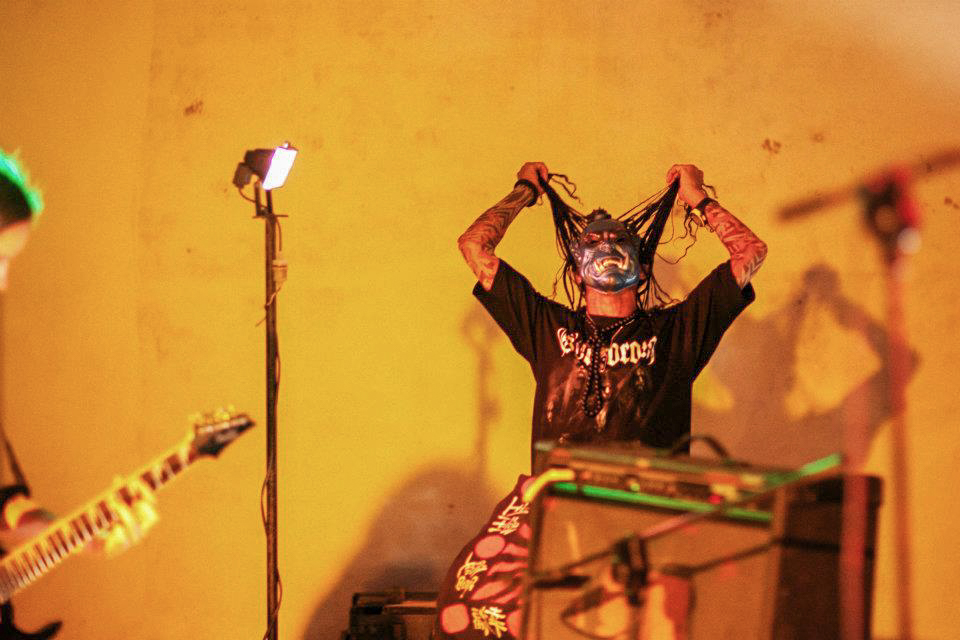
Solidarity Rock and the musicians of Arrabio and Adictox experienced a mighty dose of that resistance as they organized the 2015 tour. They were tangled in a web of red tape — visa denials, forms paid and submitted but ignored, a loss of their Canadian political support — that ultimately resulted in all of the Cuban musicians getting branded as “possible migrants.”
“Something that I felt really strongly about was that I could help people get out and experience the world…and all of the sudden, the very thing I’m trying to do is potentially going to result in these people being blacklisted for immigration anywhere, ever,” McIntosh recalls.
He was able to get eight out of the 10 applications reversed — he’s still working on the remaining two for Cubans who aren’t musicians, but were vital to the tour — and finally realize it. During it, however, Arrabio’s new drummer defected.
“Montreal’s right on the border, so he defected, in the middle of this tour after playing two shows,” he says. “I don’t have any way to judge anyone’s motivation or their life in a context like that, but I do know that really, really affected this tour that we had put everything on the line for.”
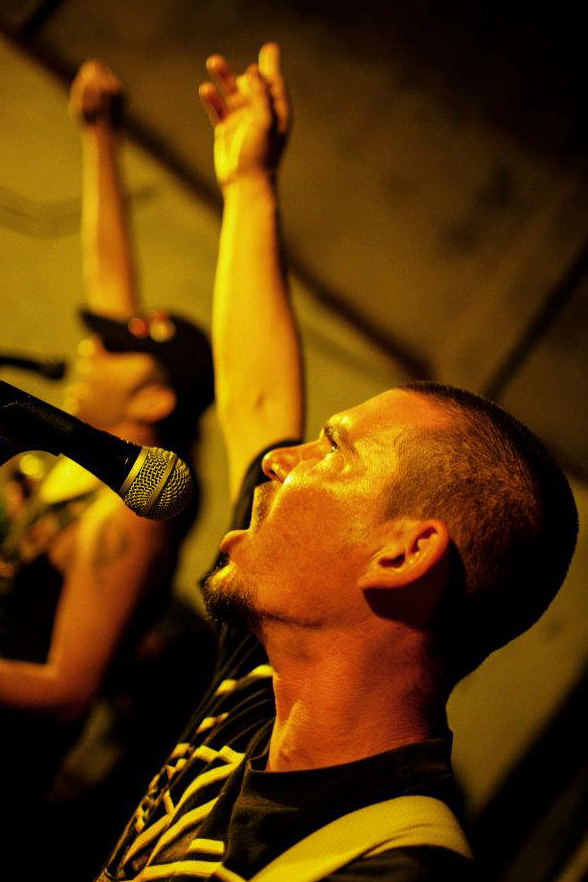
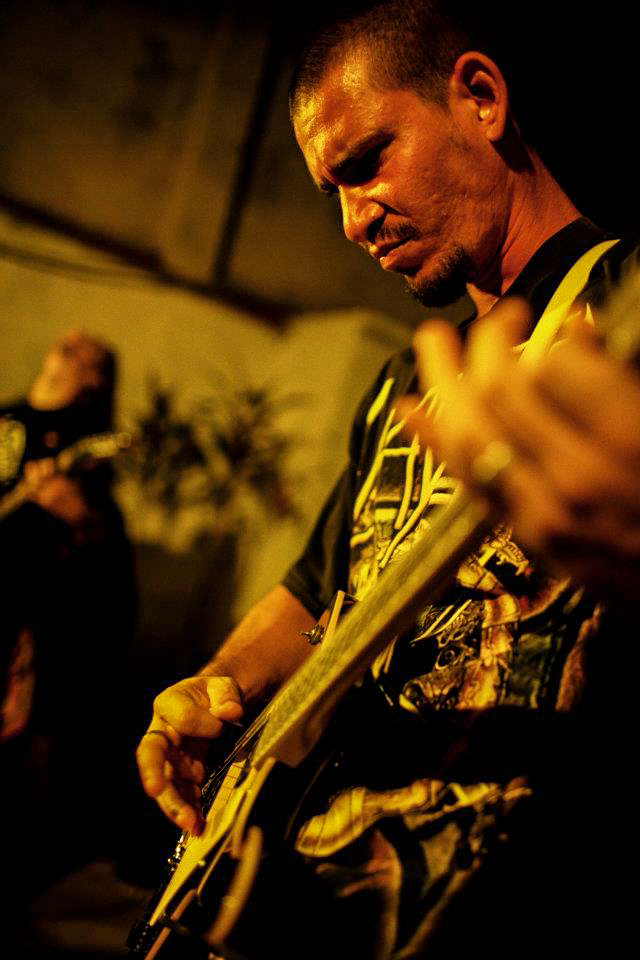
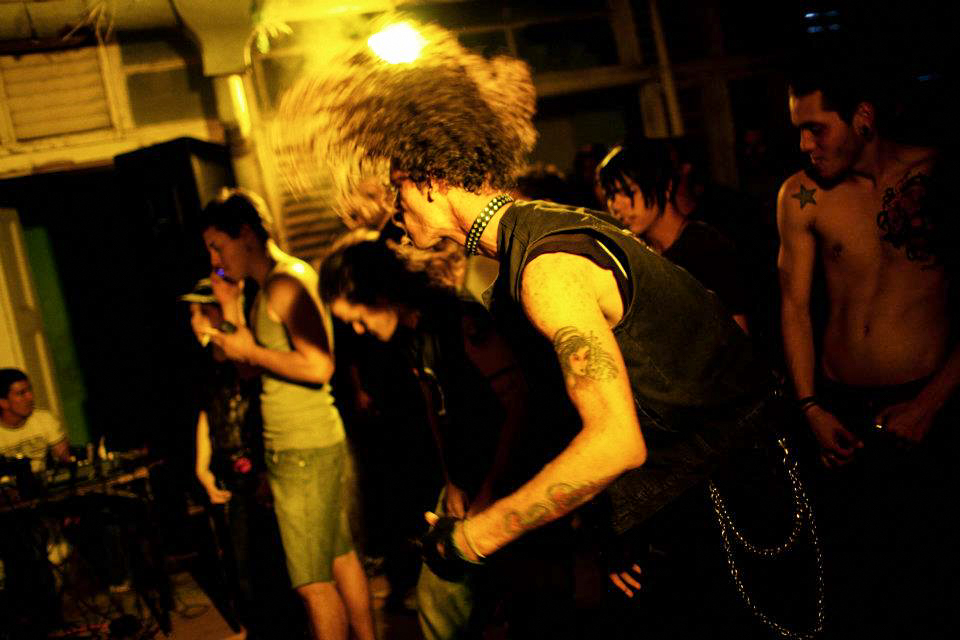
A Canadian friend filled in, and despite travel issues after having postponed the tour while they secured travel arrangements, Arrabio and Adictox completed the tour without missing a single date. They scored interviews with the punk zine standard-bearer Maximum Rocknroll. They played with bands from all over, including Australia and Colombia, and even shared the stage with Vancouver hardcore punk legends D.O.A.
“If this movement is going to continue in Cuba, it can’t be directed by someone that doesn’t live there.”
McIntosh laments, however, that the issues with that tour downgraded Solidarity Rock’s reputation in terms of fundraising. People can’t support something they’re not sure will happen, he explains. How to recover from that, as well as how to better streamline the process of flying bands out of Cuba, is something he’s still figuring out. Giving more voice to Rock Solidario, he thinks, will help.
“At a certain point, you realize that you have to…relinquish direction, control, ideas, and just support, you know what I mean? If this movement, this being punk rock, that sort of individual expression, is going to continue in Cuba, it can’t be directed by someone that doesn’t live there, who’s not from there, who isn’t of there,” he says. “Pretty much of all my aspirations have now been sort of checkmarked, so it’s a great time for me to say I want to support this, but I can’t lead it anymore, because I’ve already played my ideas out for everyone. We’re in these discussions of how do we dial back, how we can organize the structure here while still being able to meet credibility tests and all that…We’re basically, the side in Cuba, is ready to keep going and keep doing things. We’re just figuring out how to reshape our support of that in order to be of actual help instead of entrenching ourselves as a needed dynamic.”
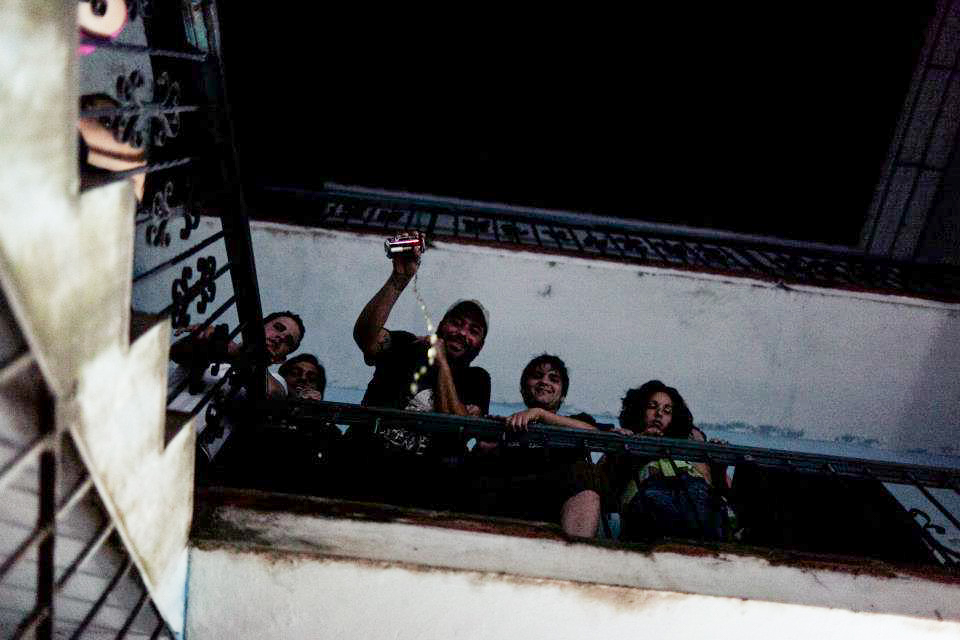
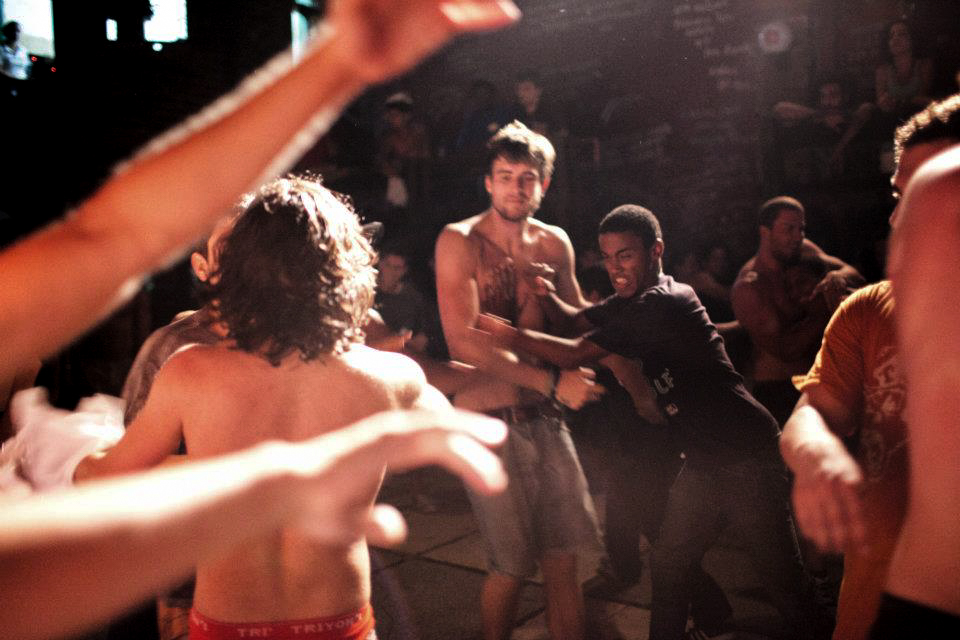
While he’s reworking his involvement, McIntosh is nonetheless still very present: He’s in the process of founding what he’s dubbed a punk rock coffee roasting company, which will likely be used as a conduit for Solidarity Rock funding. He’s also readying the release of two albums from Cuban punk bands, both recorded in a makeshift studio in a former video club, where families used to rent rooms with TVs and air conditioning.
On the island, Rock Solidario continues its work, and is now officially associated with the AHS. Paquiderma, a band from Mexico, was recently brought in through the AHS to perform. In December, Rock Solidario hosted a photography exhibit celebrating the work of the organization, and has maintained a generally thorough reportage on Facebook of shows they’ve assisted.
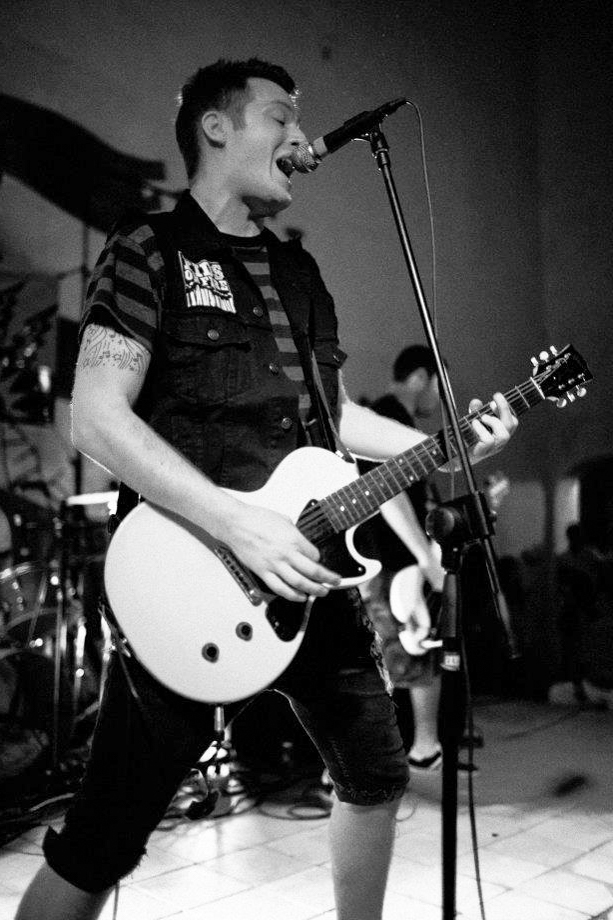
They most recently posted about a new bunch of U.S. punks and rock ‘n’ rollers who headed to Cuba. On April 17 through 24, two Oakland-based organizers took their long-running BOB Fest to Cuba. Established in 1996, the event has rotated between Oakland, Bremen, Germany, and Bath, England, where its first edition was held. Founding duo Paula and Pete took one installment of their 21st edition events to Santa Clara and Havana. Pete’s own band Kicker was on the bill, as well as several others, and Adictox and Eztafilokoko were also slated to play. They collected gear to take, too.
Certain impediments for the Cuban punk and metal underground, like door money policies and internet access, feel rigidly immutable — but there are ways to better some circumstances. “The number one thing people can do to help, for real,” McIntosh says, “and it’s not in everyone’s power to do that, is to go there.”
For those who can’t, pre-orders for Adictox’s album are slated for June 15 through Solidarity Rock. McIntosh has also lined up another trip to Canada for the band, this time around the western half from Winnipeg to Vancouver with Guadalajara band Canibales.
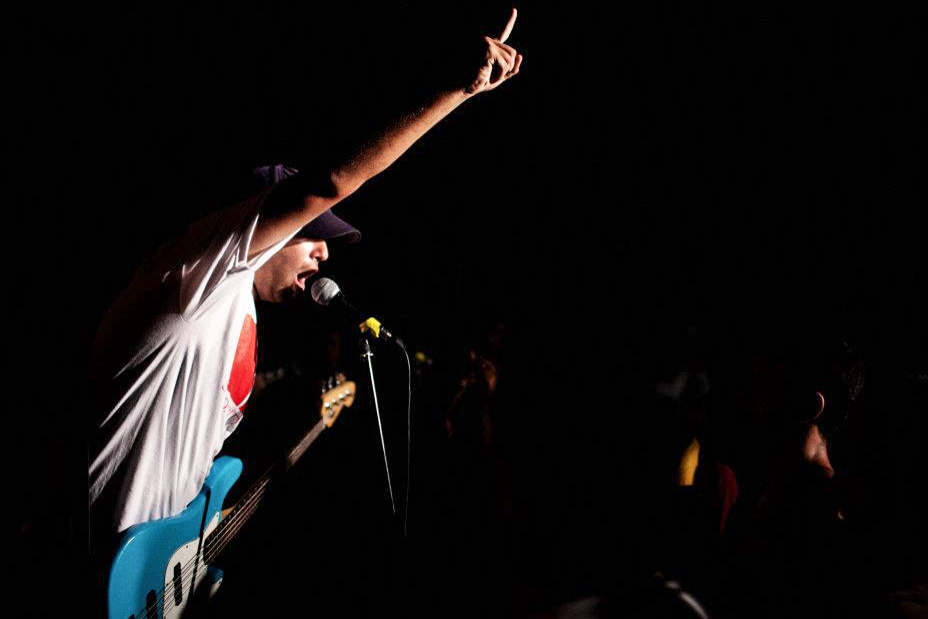
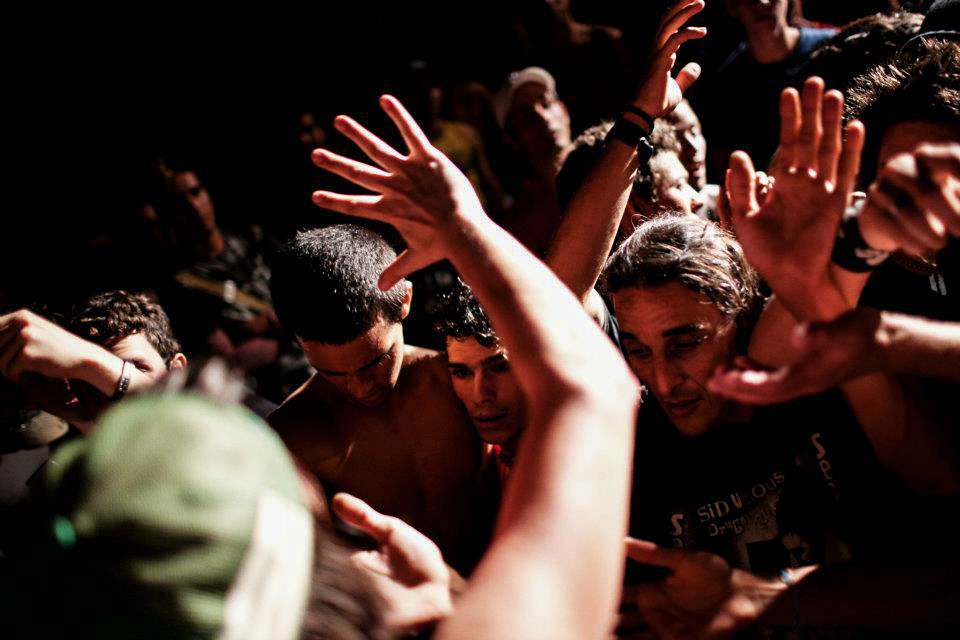
Donating gear, big or small, through DIY initiatives like BOB Fest is another helpful route. Staying in tune with the scene — following it as best you can, reaching out to musicians — is a given, and it’s the best way to truly understand what its musicians need.
“The truth is, as long as there is no radical change of policy in Cuba, we will continue, same as we have for 60 years…We will see what happens, and believe me, all the Cubans want, and we shout in silence, some of us, for a change,” Alejandro González Rodríguez wrote.
Existing despite those obstacles, though, is an audible shout in itself. The issues facing the punk and metal underground may not change anytime soon, but the degree of exchange and support from outside Cuba could. With enough work, those shouts could be so much louder.







